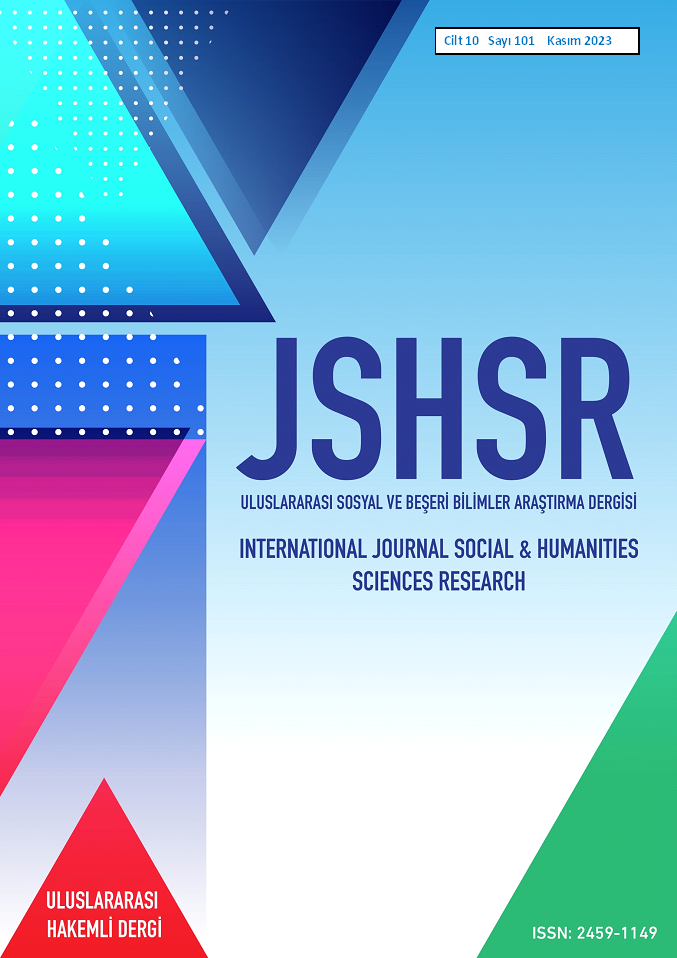the Psychological Capital Of Healthcare Workers: Importance And Effects
DOI:
https://doi.org/10.5281/zenodo.10253455Keywords:
Healthcare Professionals, Healthcare Sector, Psychological CapitalAbstract
In healthcare institutions, valuing the human resource is of utmost importance for healthcare professionals working under challenging working conditions. The significance placed on human resource is regarded as a critical factor for institutions to remain competitive and enhance the quality of patient care. The high level of psychological capital (psychological capital) among employees is also crucial in this context. Psychological capital, unlike other forms of capital, is a multifaceted concept that addresses individuals comprehensively. Its aim is to increase individuals' psychological resilience, enhance their emotional intelligence, and encourage them to exhibit positive behaviors.
The healthcare sector is inherently a critical and stressful work environment. The decisions made and actions taken by healthcare professionals can directly impact the lives of patients. Therefore, healthcare professionals carry significant responsibilities. The stress experienced by employees in the workplace can affect their mental and emotional well-being. The ability to cope with such challenges necessitates healthcare professionals to be resilient and psychologically strong. A high level of psychological capital assists employees in performing their tasks more effectively. Moreover, it instills them with the self-confidence to excel in their duties and enables them to handle challenges in a more constructive manner. Consequently, this empowers healthcare professionals to establish better communication with patients, cope with stressful situations more effectively, and engage in more efficient teamwork. Enhancing the psychological capital of hospital staff not only provides a competitive advantage for institutions but also contributes to ensuring that patients receive better healthcare services. Therefore, healthcare institutions should develop various strategies to enhance the psychological capital of their employees and harness this essential resource
References
Akdoğan, A., & Polatçı, S. (2013). Psikolojik Sermayenin Performans Üzerindeki Etkisinde İş Aile Yayılımı ve Psikolojik İyi Oluşun Etkisi. Atatürk Üniversitesi Sosyal Bilimler Enstitüsü Dergisi, 17(1), 273 - 294.
Child, J., & McGrath, R. G. (2001). Organizations Unfettered: Organizational Form in an Information-Intensive Economy. Academy of Management Journal, 44, 1134-1148.
DeDonno, M. A., & Demaree, H. A. (2008). Perceived Time Pressure and the Iowa Gambling Task. Judgment and Decision Making, 3(8), 636-640.
Dufault, K., & Martocchio, B. C. (1985). Symposium on compassionate care and the dying experience. Hope: Its spheres and dimensions. Nursing Clinics of North America, 20(2), 379–391.
Hmieleski, K. M., & Carr, J. C. (2008). The Relationship Between Entrepreneur Psychological Capital and New Venture Performance. Babson College, Babson College Entrepreneurship Research Conference (BCERC) .
Lee, S. (2005). Encyclopedia of School Psychology. Sage Publication.
Lodha, P. (2019). Digital Amnesia: are we headed towards another amnesia. Indian Journal of Mental Health, 6(1), 18-22.
Luszczynska, A., Gutiérrez-Doña , B., & Schwarzer, R. (2005). General Self‐Efficacy İn Various Domains Of Human Functioning: Evidence From Five Countries. International Journal of Psychology, 40(2), 80-89.
Luthans , F. (2002). Positive Organizational Behavior: Developing and Managing Psychological Strengths. (Cilt 16). Academy of Management Executive.
Luthans, F. (2002). The Need For and Meaning of Positive Organizational Behavior. Journal of Organizational Behavior, 1(23), 695 - 706.
Luthans, F., & Youssef, C. (2007). Emerging Positive Organizational Behavior. Journal of Management, 33(23), 695-706.
Luthans, F., & Youssef, C. M. (2004). Human, Social, and Now Positive Psychological Capital Management: Investing in People for Competitive Advantage. DigitalCommons@University of Nebraska - Lincoln, 33(2), 143-160.
Luthans, F., Yusuf, C. M., & Avolio, B. J. (2007). Psychological Capital: Developing the Human Competitive Edge (Cilt 1). Oxford University Press.
Lyubomirsky, S., King, L., & Diener, E. (2005). The benefits of frequent positive affect: Does happiness lead to success? Psychological Bulletin, 131(6), 803– 855.
Narcıkara, E. (2017). Increasingly Ascending Positivity in Organizations: Positive Organizational Scholarship Perspective”, Journal Of Behavior At Work,. Journal of behavior at work, 2(1), 20-33.
Nelson, D., & Cooper, C. L. (2007). Positive Organizational Behavior. London: Sage Publication.
Robbins, S. (2018). Organizational Behavior, Global Edition. New Jersey: Prentice Hall.
Seligman, M. E., & Csikszentmihalyi, M. (2000). Positive Psychology: An introduction. American Psychologist, 55(1), 5-14.
Sparrow, B., Liu, J., & Wegner, D. M. (2011). Google effects on memory: cognitive consequences of having information at our fingertips. Science (New York, N.Y.), 776–778.
Topaloğlu, T., & Özer, P. S. (2014). Psikolojik Sermaye İle İş Performansı Arasındaki İlişkiye Otantik Liderliğin Düzenleyici Etkisi. Organizasyon ve Yönetim Bilimleri Dergisi, 6(1), 157-171.
Downloads
Published
How to Cite
Issue
Section
License
Copyright (c) 2023 INTERNATIONAL JOURNAL OF SOCIAL HUMANITIES SCIENCES RESEARCH

This work is licensed under a Creative Commons Attribution 4.0 International License.


